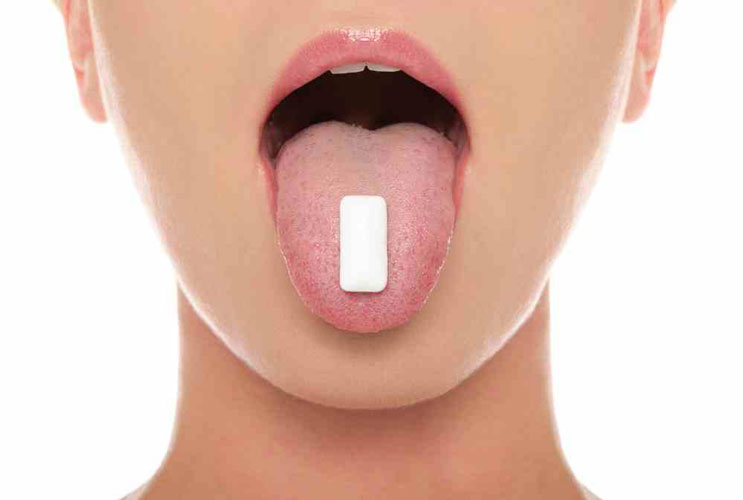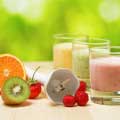
The old adage is true: you are what you eat! Following are 5 foods you may want to avoid as they may contribute to stress at work. While you may not have control over your mounting workload, you’re in the driver’s seat when it comes to your daily diet. Making smarter food choices can lead to a happier, healthier, more productive self.
1. FOODS HIGH IN CAFFEINE
Caffeine intake sometimes carries a negative connotation, but as with many things, moderation is key. Small daily doses of caffeine – try and stick to 16oz. or less – is OK. Black coffee and tea, for example, are not only a lot lower in sugar than most soft and sports drinks; they’re also rich in antioxidants which may help reduce the risk of certain diseases and ultimately be beneficial to overall health. The harm in caffeine comes with its over-consumption. In large amounts, because it’s a powerful stimulant, caffeine can cause anxiety and loss of concentration, in turn leading to loss of productivity and heightened stress on the job. Some people are more sensitive to caffeine than others. If you feel yourself becoming jittery or irritable after multiple caffeinated beverages, it would do best to limit your intake.
Read Related: Finding Zen, Easy Ways to Cultivate More Inner Peace
2. SODIUM-RICH FOODS
An excess of sodium causes the body to retain fluids, which may cause hypertension. Though research is unclear on whether or not stress alone can result in prolonged high blood pressure, sticking to a diet low in fat and sodium can be best. Small changes, such as ordering a simple grilled chicken sandwich with avocado and lots of veggies on whole wheat bread instead of a huge sub weighed down by cheese, meat and high sodium condiments, may help keep blood pressure down. Of course, other lifestyle changes including regular exercise, adequate sleep, and meditation can also help keep hypertension and stress at bay. If you’re an office-dweller, break up your 9-to-5 with a quick walk around the block if possible, if not, even simple stretches at your desk can be beneficial.
3. JUNK FOOD
While packaged sweets and other quick-fix snacks seem to satisfy cravings, their effect is temporary and typically result in feelings of sluggishness and hunger. Not only do they leave you feeling famished, most junk foods are simple carbohydrates void of protein, fiber, vitamins and minerals, the same dietary essentials which assist the body in regulating stress levels. We also know that frequent consumption of high-calorie, high-fat foods can lead to weight gain that can bring a whole slew of health issues – such as, obesity, diabetes and heart disease. So instead of a visit to the vending machine bring a healthy snack to work with you that could keep your body energized, such as a low-fat plain yogurt with berries, raw veggies and hummus, or an apple with natural peanut butter.
4. FATTY FOODS
When we think of fatty foods, pizza, fried chicken and mashed potatoes most likely come to mind first; but we may also be consuming lots of fat in other types of foods we don’t think of. For example, if you are consuming a large amount of 100% whole fat dairy (such as cheese, yogurt, milk) daily you may also need to be concerned. Instead of pouring full-fat cream in your daily cup of joe or drowning your cereal in full-fat milk, try 1% low-fat or nonfat milk for starters or try alternatives like almond or soy milk. It may take a while to adapt to the new taste, but starting your day with a heart-healthy beverage is worth the switch.
5. ALCOHOL
Even if your alcohol intake doesn’t match Don Draper’s on the job, studies show that it’s the light or light-to-moderate drinkers who cause more problems than their heavy drinking counterparts, and the reason is their hangovers. Hangovers may kill your chance at productivity and subsequently increase your stress. Partaking in a glass of wine or beer at a business lunch also may not benefit you. While it may lower our inhibitions, reaction time and sense of judgment, research shows that alcohol also stimulates the release of cortisol, also known as the body’s ‘stress hormone.’ When you’re on the clock, stick to sparkling water or another non-alcoholic alternative.
ABOUT THE AUTHOR
Keri Gans is a Registered Dietitian/Nutritionist, Spokesperson and Media Personality with a private practice in New York City. She is the author of The Small Change Diet (Gallery, March 2011), a Past-Spokesperson for the Academy of Nutrition and Dietetics and a Past-President of The New York State Dietetic Association.












